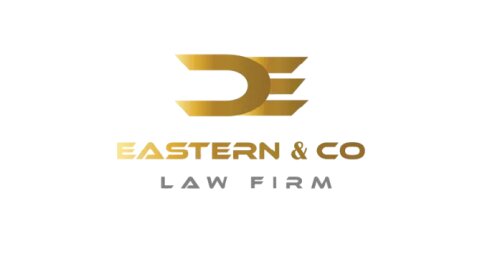Best E-commerce & Internet Law Lawyers in Egypt
Share your needs with us, get contacted by law firms.
Free. Takes 2 min.
Or refine your search by selecting a city:
List of the best lawyers in Egypt

About E-commerce & Internet Law in Egypt
E-commerce and Internet Law in Egypt encompasses a broad range of legal issues related to the online business environment. This includes regulations around online contracts, digital rights, consumer protection, data privacy, and electronic transactions. In recent years, the Egyptian government has been active in updating laws to accommodate the rapid growth of digital commerce and online services. This area of law is designed to facilitate secure and fair e-commerce practices within the country, ensuring that transactions and digital interactions are compliant with international standards.
Why You May Need a Lawyer
There are several situations in which individuals and businesses might require legal assistance in E-commerce & Internet Law:
- Establishing a new e-commerce business, which involves understanding legal requirements and obtaining the necessary licenses.
- Drafting and reviewing terms of service, privacy policies, and other legal documents essential for running an online business.
- Handling disputes with consumers, suppliers, or competitors that arise from online transactions.
- Navigating issues related to intellectual property, such as copyright and trademark infringements on the Internet.
- Ensuring compliance with data protection regulations, particularly in light of increasing global scrutiny on privacy issues.
- Addressing cybersecurity concerns and protecting sensitive information from data breaches.
Local Laws Overview
Key aspects of local laws pertinent to E-commerce & Internet Law in Egypt include:
- The Electronic Signature Law No. 15 of 2004, which underpins the legal framework for electronic transactions, including the use of e-signatures.
- The E-commerce Law, which sets out rules for online contracts and consumer rights in digital transactions.
- The Personal Data Protection Law No. 151 of 2020, which governs the collection, processing, and storage of personal data by businesses operating online.
- Intellectual Property Laws that protect digital content and online brands.
- Cybercrime Law No. 175 of 2018, which deals with offenses committed via the Internet, including fraud and unauthorized access to computer systems.
Frequently Asked Questions
What constitutes an e-commerce business in Egypt?
An e-commerce business in Egypt includes any commercial activity conducted through electronic networks, particularly the Internet, which covers buying and selling goods, services, and digital products.
Do I need a license to operate an online store in Egypt?
Yes, a license is typically required to operate an online store in Egypt. This involves registering the business with the relevant authorities and ensuring compliance with local laws governing commerce and trade.
How can I ensure compliance with data protection regulations?
Compliance with the Personal Data Protection Law requires businesses to establish protocols for informed consent, data security, and transparency in handling personal data. Consulting a legal expert can help navigate these requirements.
What legal protections exist for online consumers in Egypt?
Consumers are protected under the E-commerce Law and Consumer Protection Law, which ensure fair treatment, transparency in transactions, and recourse in cases of disputes or fraudulent activities.
What are the penalties for violating e-commerce and Internet laws?
Penalties vary depending on the nature of the violation but can include fines, business closure, and in severe cases, criminal charges for breaches like cybercrimes or data privacy violations.
How can businesses protect their intellectual property online?
Businesses can protect their intellectual property by registering copyrights, trademarks, and patents, and by enforcing these rights through legal channels against infringement.
What steps should be taken in the event of a cyber attack?
In the event of a cyber attack, immediate steps include notifying affected parties, documenting the incident, enhancing security measures, and reporting the breach to the relevant authorities.
Can electronic signatures be used for all types of contracts in Egypt?
Electronic signatures are legally recognized for most types of contracts under the Electronic Signature Law, provided they meet the specified authenticity and integrity criteria.
What legal recourse is available if a customer's data is breached?
Under the Personal Data Protection Law, customers can seek compensation for damages and report breaches to the Data Protection Center, which can impose penalties on the offending business.
Are there any special regulations for cross-border e-commerce in Egypt?
Cross-border e-commerce may involve additional regulations concerning customs, taxation, and adherence to international trade agreements. Businesses should seek specialized legal advice to ensure compliance.
Additional Resources
For those seeking further information or assistance, consider reaching out to the following resources:
- The Egyptian Organization for Consumer Protection - provides guidance on consumer rights and complaints.
- The Information Technology Industry Development Agency (ITIDA) - offers support for the IT and e-commerce sectors.
- The Ministry of Communication and Information Technology - oversees digital infrastructure and regulatory compliance.
- Legal consultancy firms specializing in digital law, offering bespoke advice for specific business needs.
Next Steps
If you require legal assistance in E-commerce & Internet Law, consider the following steps:
- Identify your specific legal needs and gather any relevant documents or information related to your case.
- Consult with a lawyer or legal expert who specializes in E-commerce & Internet Law in Egypt to discuss your situation and legal options.
- Ensure that you understand the fee structure and services provided by the legal expert before proceeding.
- Stay informed and proactive about legal developments by attending workshops or seminars on e-commerce law.
Taking these steps will help ensure that your dealings in the e-commerce sphere are legally sound and protect your interests effectively.
Lawzana helps you find the best lawyers and law firms in Egypt through a curated and pre-screened list of qualified legal professionals. Our platform offers rankings and detailed profiles of attorneys and law firms, allowing you to compare based on practice areas, including E-commerce & Internet Law, experience, and client feedback.
Each profile includes a description of the firm's areas of practice, client reviews, team members and partners, year of establishment, spoken languages, office locations, contact information, social media presence, and any published articles or resources. Most firms on our platform speak English and are experienced in both local and international legal matters.
Get a quote from top-rated law firms in Egypt — quickly, securely, and without unnecessary hassle.
Disclaimer:
The information provided on this page is for general informational purposes only and does not constitute legal advice. While we strive to ensure the accuracy and relevance of the content, legal information may change over time, and interpretations of the law can vary. You should always consult with a qualified legal professional for advice specific to your situation.
We disclaim all liability for actions taken or not taken based on the content of this page. If you believe any information is incorrect or outdated, please contact us, and we will review and update it where appropriate.
Browse e-commerce & internet law law firms by city in Egypt
Refine your search by selecting a city.
















